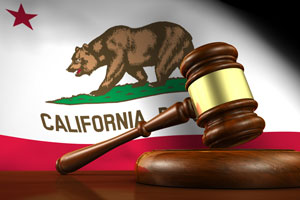In Arave v. Merrill Lynch, a California Appellate Court recently ruled that employers who win Fair Employment and Housing Act (FEHA) cases can be reimbursed for the fees and costs only if they can prove that the plaintiff’s case was frivolous.
The Dispute
Brent Arave was a managing director with Merrill Lynch and a member of the Church of Jesus Christ of Latter-day Saints. In September 2010, an anonymous employee satisfaction survey was conducted by a third party on behalf of Merrill Lynch. The survey led to Arave’s resignation and him suing his former employer under the California Fair Employment and Housing Act, alleging discrimination, harassment, and retaliation based upon his membership in the Church of Jesus Christ of Latter-day Saints.
A jury returned a verdict in favor of defendants and awarded them fees and costs, including $83,642.68 in costs and expert witness fees. Arave appealed the ruling.
The Appeal
Arave argued numerous claims on appeal, including that the trial court erred by awarding defendants costs and expert witness fees on his FEHA claims, despite finding that the claims were nonfrivolous.
The trial court awarded the defendants $54,545.18 in ordinary legal costs. In Williams v. Chino Valley Independent Fire District, the California Supreme Court held that a prevailing defendant cannot recover ordinary costs on FEHA claims “unless the court finds the action was objectively without foundation when brought, or the plaintiff continued to litigate after it clearly became so.” The appellate panel found that, because the trial court held that the FEHA claims were not objectively without foundation, the defendants were not entitled to recover the ordinary costs it incurred in defending Arave’s FEHA claims.
The trial court awarded defendants $29,097.50 in postsettlement offer expert witness fees under Code of Civil Procedure section 998. The appellate panel reversed the award of expert fees, ruling that the FEHA reimbursement provision found in Section 12965(b) trumped the more general fee-shifting provisions in section 998(c) of the Code of Civil Procedure and section 12965(b) does not authorize expert fee awards to defendants absent a showing of frivolity. Because the trial court determined that the claims were not frivolous, the appellate panel held that it erred in awarding expert witness fees to defendants.
The court wrote, “Prospective plaintiffs with meritorious claims trying to decide whether to attempt to vindicate their rights would not be able to predict their exposure. Any attorney advising a prospective plaintiff would have to acknowledge they may lose even a very strong suit and end up being compelled to pay defendant tens of thousands of dollars in expert witness fees. Indeed, if we accepted defendants’ position, our decision would be an object lesson for all future FEHA plaintiffs on the risks of bringing colorable discrimination claims.”
The decision by the Fourth Appellate District creates a split of authority among the California appellate courts on the issue of FEHA expert witness fees.




